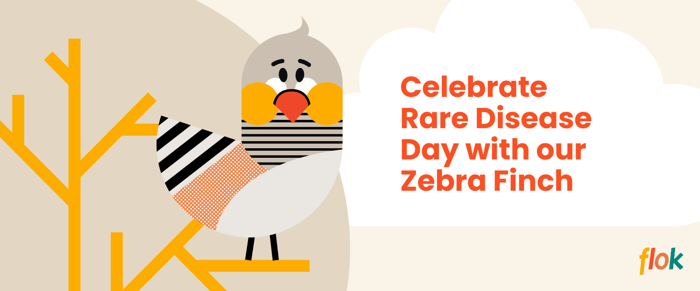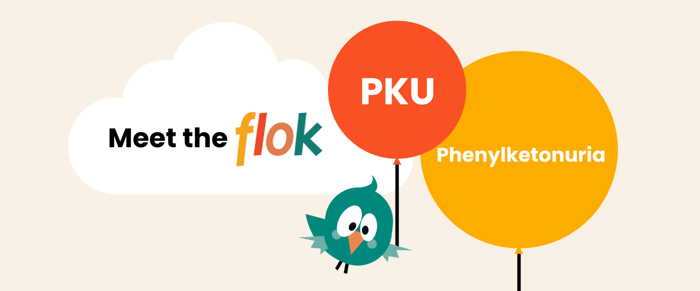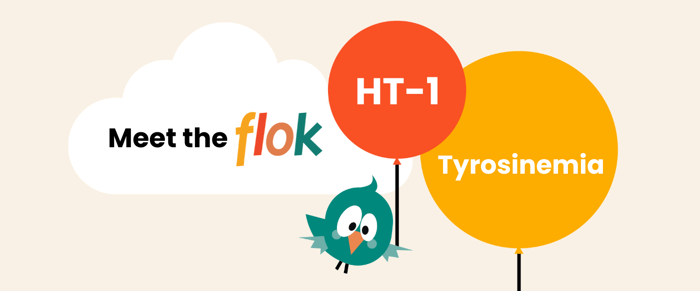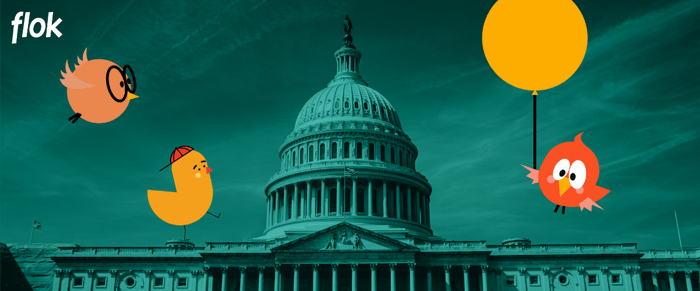Meet the Zebra Finch
Held every year on the last day of February, Rare Disease Day honors the 300 million people worldwide who live with a rare condition. In a Leap Year like 2024, Rare Disease Day falls on the rarest day of the year: a fitting day for our global community to highlight its needs for equal access, more research, and better treatment options.
Why zebras? Students in medical school are often told, “When you hear hoofbeats, think of horses, not zebras.” Horses represent the more common and likely diagnosis a doctor should consider; a zebra is the least probable answer. In the broader context of medicine, those with rare diseases are zebras; at flok, we are zebra finches – and we proudly wear our stripes.
A flok Without Borders
PKU News became flok to widen our scope and better serve our community of inherited conditions of protein metabolism. We strive for better care, faster progress toward treatments, and overall improved health. The community that flok serves is among the rarest of the rare: less than 50,000 people total in the United States live with Classical Homocystinuria, PKU, Maple Syrup Urine Disease, Organic Acidemias, Tyrosinemia, and Urea Cycle Disorders. This means our conditions are under-researched, not well understood, and have limited treatment options.
Our flok is part of a larger, global ecosystem of rare diseases that face these same obstacles. Rare Disease Day is the annual celebration that unites our international community in a shared quest to spread awareness and demand health equity in policy and treatment for our members. Let’s explore the importance of Rare Disease Day and how you can help our zebra finches fly this February 29th.
What Makes a Disease a Rare Disease?
With one in every 10 Americans living with a rare disease, “rare” might feel like a misnomer. For a condition to be called rare, it must affect fewer than 200,000 people; there are currently more than 7,000 identified rare conditions that meet this criterion. While our individual conditions are rare, we are large in number collectively, and deserving of the same resources granted to people with more widespread medical conditions.
Universal Obstacles for the Rare Disease Community
Though our rare conditions vary, a common thread binds us: we’re often overlooked by researchers, policymakers, and healthcare industry leaders. This results in stagnant treatment options, medical isolation, and health disparities. To accelerate care for our community members we need:
- Structured data collection on our conditions to guide research opportunities
- Standardization in diagnostic processes and approach to prevent late diagnosis
- Greater understanding of our conditions to equip medical professionals providing care
- Curative treatments, rather than just therapies for symptom management
- Equal and affordable access to treatment and care options
The Power of Our Rare Disease Day Platform
In addition to their distinctive stripes, zebra finches have several unique traits: They are more social than most migratory birds and travel long distances in large groups to find food for their entire flock. They also have the rare ability to learn new vocalizations and respond to variations in song. As the zebra finches of flok, we are community-driven, always learning and evolving, and committed to the collective journey of nourishing and supporting our broader flok as we move together towards a common goal. Launched in the United States in 2009 by the National Organization for Rare Disorders (NORD) through its partnership with EURORDIS, Rare Disease Day creates a campaign platform for individuals and organizations to advocate for their needs. Since its inception, this global observance continues to increase its participation and impact; over 120 countries hosted events in 2023. In addition to attending community events, many people share personal stories about life with a rare condition, call on policymakers to enact legislation that supports diagnosis and access to treatment, and donate to patient advocacy organizations.
This Rare Disease Day, Help Our Zebra Finches Soar to New Heights:
- Post on social media to raise awareness for our conditions and use the hashtags #celebraterare #rarediseaseday #flok #zebrafinch #HCU #MSUD #PKU #organicacidemias #tyrosinemia #ureacycledisorders
- Share your personal story on the Medical Nutrition Equity website to illustrate the importance of medical nutrition access for our protein metabolic community
- Donate to flok and support our mission to advance research and power new treatment options for our community
When you celebrate Rare Disease Day, you amplify the voice of our flok community. While our conditions are rare, they deserve focused research, improved treatment options and policies for equitable access to care; your participation in this global movement drives this work forward. Learn more about how you can support flok here.



